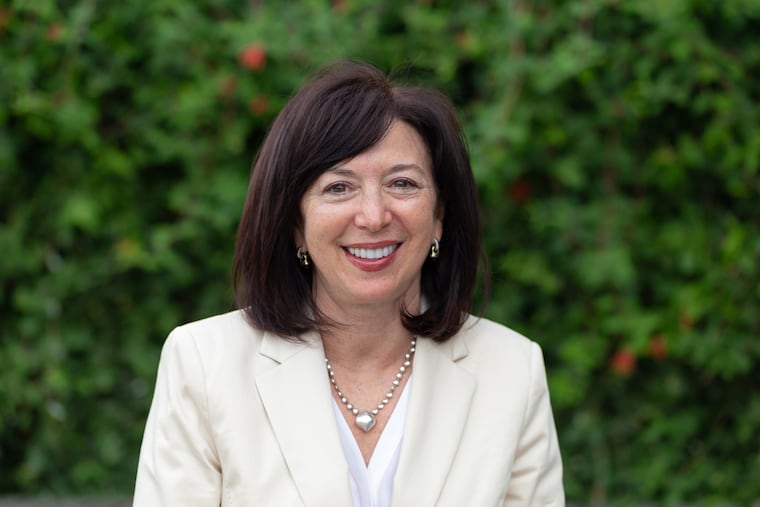Philly-based gene-therapy drugmaker Aro Bio raises $88 million, will double staff
Plans are to focus first on rare genetic diseases, and then the larger market for immune system diseases.

Aro Biotherapeutics, a University City-based gene-therapy maker founded by two former Johnson & Johnson scientists, has raised $88 million from J&J and other investors in the U.S. and Europe to help bring its line of RNA-based drugs to market.
“We’re very excited,” said Susan Dillon, Aro’s chief executive and cofounder. ”The amount of money we’ve raised is sufficient to more than double our team” from the current 20 to more than 40 scientists and bosses, by next year, and to advance Aro treatments toward clinical testing.
Aro’s drugs are based on Centyrins, human proteins that the company engineers to target hereditary and immune-system diseases. Dillon and cofounder Karyn O’Neil say Centyrins are better suited to mass production than many of the custom-made treatments that other gene-therapy groups have been developing. Gene and cell therapies have drawn piles of investor capital to Philadelphia and other biotech centers in recent years.
Last winter, Aro cut a deal with Ionis Pharmaceuticals Inc., which agreed to pay up to $1.4 billion for successful treatments developed by Aro. “Ionis has exercised a license for one of the programs we are collaborating on. It is headed into preclinical development in 2021,” Dillon confirmed. She declined to say how much Ionis has paid so far, or name the target, beyond noting it is “a rare genetic muscle disease.”
Aro plans to focus at first on drugs for rare genetic diseases, which are regulated for faster approval and often lack competitors, and then expand into the larger market for immune-system diseases. The company is based at the BioLabs at CIC biotech incubator, run by a pair of Boston-area companies at the University City Science Center’s 3675 Market St. office and lab building.
The investors are led by Northpond Ventures, which has more than $1 billion invested in science, medical, and technology companies from offices in suburban Washington, D.C., Boston, and San Francisco; and Cowen Healthcare Investments, a division of Wall Street investment bank Cowen & Co.
Dillon said the deal was “oversubscribed,” with investors offering more than Aro planned to raise, enabling the company to select investors with business and science experience, as well as ready cash.
“This is a group of investors that really have a lot of confidence in our team and our vision,” she said, adding that she’s confident clinical data from Aro projects will keep drawing big investors: “It’s never too early to start looking at the next round of financing.”
Others whose cash and brains were accepted by Aro for the $88 million funding round include HealthCap, a Scandinavian and Dutch biotech investor; Ridgeback Capital, of New York; and Johnson & Johnson’s J&J Development Corp., which has a branch office at the University of Pennsylvania’s Pennovation center, and which licensed Centyrin technology to Aro in 2018 to start the company.
“Aro’s unique and proprietary Centyrins platform” has “significant potential,” plus “experienced leadership” and “bold therapies” on the drawing board, Northpond director Shaan Gandhi said in a statement. Gandhi is joining the Aro board as part of the deal.
Aro attracted Cowen cash because it is “on the cutting edge in the development of genetic medicines,” said Cowen partner Kevin Raidy, who is also joining the Aro board.
The new money “will get us through the next two and a half years. We plan to use that time well,” and “develop a pipeline” of new, effective drugs for patients, Dillon concluded.
Philadelphia has been a center of RNA research. Other area projects include foundational work by Penn scientists Drew Weissman and Katalin Karikó leading to noninflammatory modified RNA for use in vaccines such as Pfizer’s and Moderna’s COVID-19 immunizations.
Hopeful Passage
Shares of Passage Bio, the Philadelphia genetic medicines maker that went public last year, rose 11% Monday -- returning to mid-December’s highs -- after the company said the U.S. Food and Drug Administration advanced Passage’s gangliosidosis rare-disease treatment toward its first clinical trial patient by March. The treatment is based on the cold virus gene-therapy treatment developed by University of Pennsylvania professor James Wilson.
Diversifying
In the latest merger of Philadelphia-area registered investment advisers (RIAs) seeking to bulk up for efficient competition, Diversified Lifelong Advisors, Wilmington, says it is combining with RZ Wealth, Wayne, forming a single firm with 21 employees investing more than $900 million for 953 clients. They will work under the Diversified name, reporting to bosses led by Diversified president Andrew Rosen and chief executive Michael Fisher.